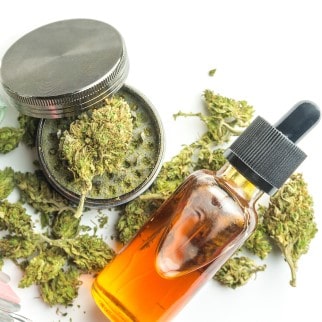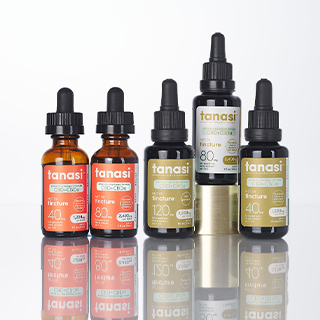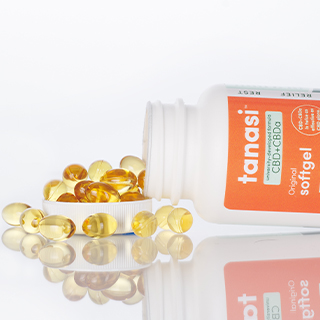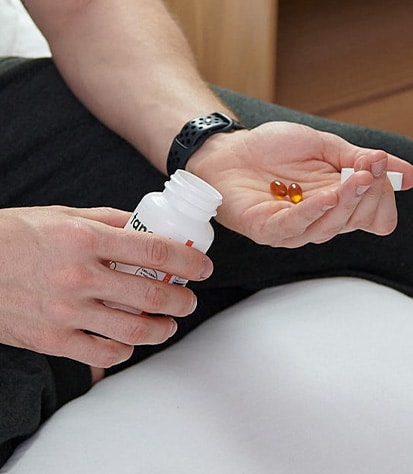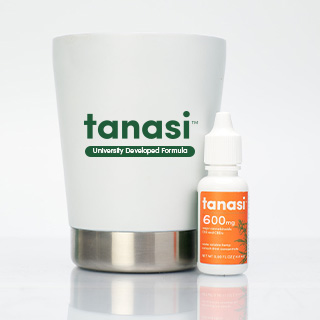CBD For Appetite – Does It Increase It or Decrease It?
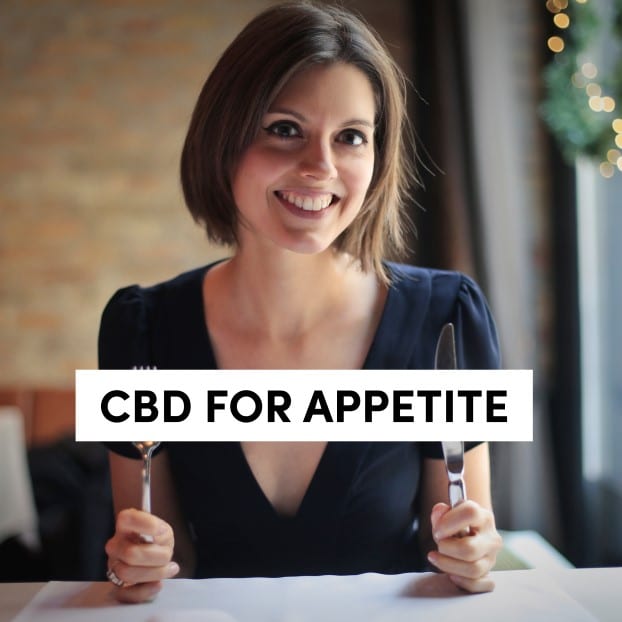
Posted on March 22nd, 2021
A person’s relationship with food is something of a complicated affair nowadays. That is because the amount of food you consume is dictated by a combination of environmental, genetic, mental, and physical factors. However, being able to achieve and maintain a healthy appetite is crucial for someone’s long-term health of someone. Thus, for CBD enthusiasts, the question becomes, is using CBD for appetite something that could actually contribute to that goal?
This is a question we must look at in detail to really understand CBD and how it plays a role in affecting our appetite. However, as we are discussing CBD for appetite, we must first make the necessary distinction between hunger and appetite.
Hunger: We can define hunger as the absolute need to eat. It is an innate survival mechanism that helps fuel our body and keep it in optimal condition. Hunger is a feeling initiated by the body in order to fuel it.
Appetite: This is more accurately expressed as the desire to eat. When a person is hungry, they need food, which is a situation that cannot be avoided. However, appetite defines the type of food a person finds appealing, and the time when it’s appealing to them to eat it.
The second term and its relationship with CBD are the ones this article is going to go over.
What Are Cannabinoids?
Cannabinoids are compounds present in plants belonging to the cannabis family. It is important to note that there are more than a hundred cannabinoids. However, the bulk of the research focuses on two of them that also happen to be the most abundant cannabinoids available.
CBD, or Cannabidiol – Makes up about 40% of a plant resin extract. According to recent research, most of the beneficial therapeutic effects from cannabis might be because of CBD.
THC, or Tetrahydrocannabinol – The most well-known cannabinoid as well as infamous for its psychoactive effects. It is the reason you get high when consuming cannabis.
Both of these cannabinoids do, in fact, affect appetite but do so in different ways. As mentioned, there are many cannabinoids currently separated into the following subclasses:
- Cannabinodiol (CBDL)
- Cannabigerol (CBG)
- Cannabinol (CBN)
- Cannabidiol (CBD)
- Cannabichromene (CBC)
- Cannabielsoin (CBE)
- Tetrahydrocannabinol (THC)
- Cannabicyclol (CBL)
- Cannabinodiol (CBDL)
- Cannabitriol (CBT)
As research continues forward, no doubt we will see more and more cannabinoids continue to pop-up.
CBD Vs. THC – What Is the Difference?
We need to have a better understanding of the difference between these two cannabinoids if we are to understand why they affect appetite differently. For the purpose of doing an orderly presentation of information, we’ll address how they differ in the following categories:
- Structure
- Psychoactivity
- Legality
- Medical benefits
- Side effects
Understanding each difference will make it easy to learn or know more about CBD for appetite.
1. The Psychoactive Components
Both CBD and THC do not share the same psychoactive effect; in fact, they have nothing in common in that area. CBD by itself is non-psychoactive, unlike THC, which is very, very much so. In other words, CBD does not produce the ‘high’ effect assonated with THC.
CBD, research tells us, binds very weakly to CB1 receptors. The bulk of its effects being on how it works on the periphery of the endocannabinoid system.
THC, on the other hand, binds very strongly with CB1 receptors in the brain. That is the reason that, in turn, produces a sense of euphoria and gets you high.
2. The Chemical Structure
Both THC and CBD have the very same molecular structure with 21 carbon atoms, 30 hydrogen atoms, and two oxygen atoms. The only difference is in the atom’s arrangement, and that arrangement it’s the sole reason why each affects you differently.
3. The Medical Benefits
Both have many similar potential benefits that could provide relief for people with certain conditions. However, CBD does not cause the euphoric effects of THC, which is why many people would prefer CBD over THC.
Back in June 2018, the FDA approved the first prescription medication that contained CBD, Epidiolex. This medication was treats rare and difficult to control forms of epilepsy.
Nevertheless, CBD enthusiast and researchers believe that you could use it to address the following conditions:
- Anxiety
- Depression
- Migraine
- Nausea
- Inflammatory bowel disease
- Mental or psychosis disorder
- Pain
- Seizures
On the other hand, researchers also claim with much evidence that THC could help with: –
- Anxiety
- Nausea
- Low appetite
- Insomnia
- Glaucoma
- Muscle spasticity
- Pain
However, do note that, since most smoke marijuana to take THC and marijuana contains CBD as well, those potential therapeutic effects might be in large part due to CBD and not THC.
4. The Legal Aspect
Today in the U.S., cannabis-related laws are changing. In 2018, hemp saw the removal from the controlled substance act, making its growth, processing, and retail legal at the federal level.
However, federal law also gave each state the right to enforce its own laws regarding CBD. Thus, check your state’s CBD legal status before attempting to buy some.
As for THC, some states in America already have cannabis-related laws which made medical cannabis with high levels of THC legal. However, registered patients require a prescription to buy it. Lastly, a few states already made recreational marijuana legal which also makes it very likely that CBD is legal there as well. However, do double-check the state’s CBD laws.
5. The Side Effects
Both THC and CBD have side effects, especially if consumed in large quantities. Usually, drug-to-drug interactions with CBD for appetite are most likely to result in side effects.
CBD Side effects may include:
- Diarrhea
- Dizziness
- Weight loss
- Fatigue
- Appetite changes
THC side effects may include: –
- Anxiety
- Memory loss
- Slow reaction time
- Red eyes
- Dry mouth
- Coordination problems
- Heart rate increase
THC’s side effects are mainly caused by the psychoactive compound properties. None of the compound’s side effects are fatal, though.
Will CBD Make You Hungry?
Many report that consuming either of these Cannabinoids makes them hungry or makes them feel like eating something. Well, the truth is that feeling is not hunger but an appetite. It is natural, and it is a body’s way of telling a person that they need food.
Nevertheless, CBD influences the feeling that makes a person want to eat as well as the metabolism. However, CBD does not make people binge eat like THC tends to do.
CBD’s metabolic influence on feeding or appetite comes down to the way it interacts with the endocannabinoid system.
Can CBD Help You Lose Weight?
There is no doubt that one of the best ways to support a healthy appetite is by staying active. On the other hand, exercising will help you burn calories, and it’s a great way to lose weight. However, if you are trying to lose weight, it does not mean to prevent yourself from enjoying treats. Essentially everything comes down to having a balanced approach and maintaining a healthy diet.
While losing weight, it is important to supplement your efforts with omega fatty acids. Remember, not all omega acids are the same or help you; as such, concentrate on omega-3, which is found in oily fish, nuts, and hemp seeds.
CBD may help in losing weight because of the way it affects the body and brain. In other words, it will depend on the way it affects the body’s natural endocannabinoid system. This is a bodily system that reacts differently to different chemicals in the body through two receptors known as CB1 and CB2.
- CB1 Receptor – This is highly present in the brain and central nervous systems
- CB2 Receptor – These are mainly present in the immune system
CBD For Appetite – Does It Increase It?
The short and direct answer is ‘maybe.’
Marijuana has a reputation for affecting a person’s eating habits and intake. However, we are talking CBD, which manufacturers extract from hemp.
CBD also binds weakly to the cannabinoid receptors. Its effects are rather due to boosting the overall efficiency of the endocannabinoid system in other ways. The cannabinoid system is a huge network that is responsible for maintaining body homeostasis. One of its functions is influencing fundamental bodily functions, which also includes appetite.
However, there is a massive information problem when it comes to CBD from cannabis. Here’s why: some suggest that it promotes appetite while others suggest that it decreases the feeling of hunger. Therefore, which CBD for appetite is correct?
CBD’s ability to stimulate appetite comes from its influence over the serotonin receptors. These receptors play a massive role in digestion and appetite. According to research, CBD might help increase appetite by reducing the symptom of stomach upset rather than affecting the feeling of hunger directly. Inversely, another study claims that CBD can attenuate the munchies-inducing effects of THC if taken beforehand in sufficient quantities. So, from the available information, we can conclude that CBD does not, in fact, increase appetite, like THC does, but decreases it, which might be why some use CBD for weight loss.
CBD For Appetite – Can You Add CBD to A Meal or Drink?
Yes! You can add CBD to meals and drinks. In fact, it has become a popular method of consuming CBD in many major cities like London. Some eateries and restaurants began selling beverages and dishes with a new twist. However, in America, the FDA does not allow restaurants to sell CBD added to any consumable item.
You should avoid heating Cannabidiol (CBD), especially in meals. You should add it as the final stage of the recipe. In other words, you should sprinkle it into a prepared meal or drink while serving.
You can add CBD to drinks like coffee, tea, green tea, matcha, soups, and smoothies. It is also a wonderful addition to meals like pasta, salad, and dips. Bon CBD Appetit!

